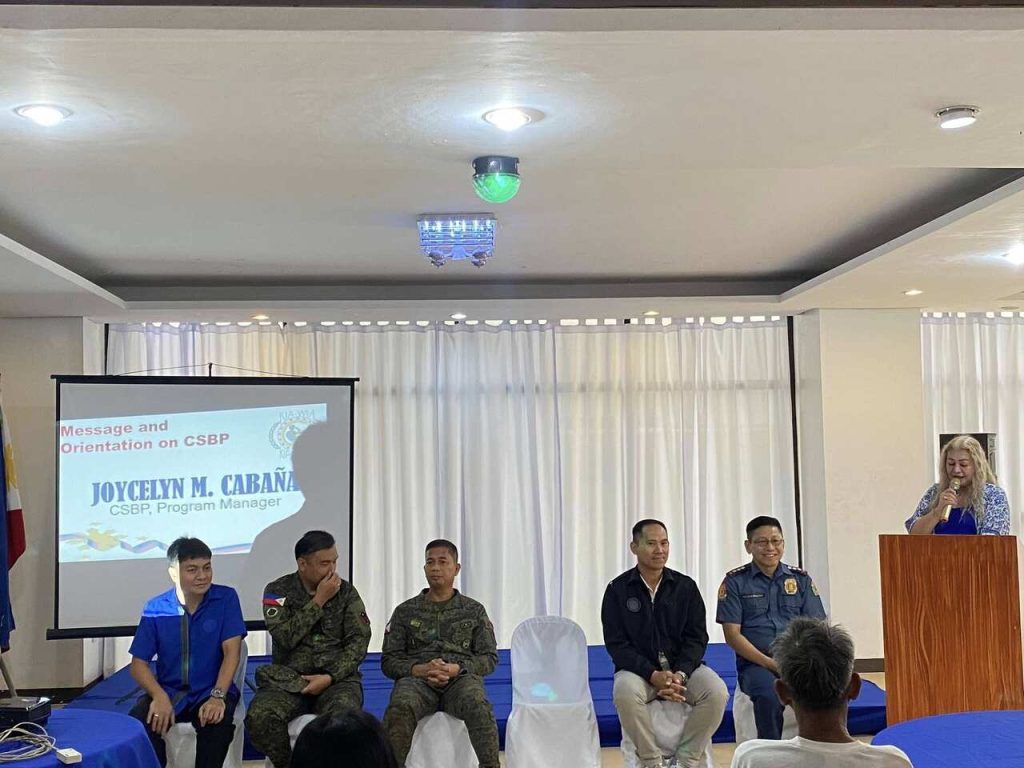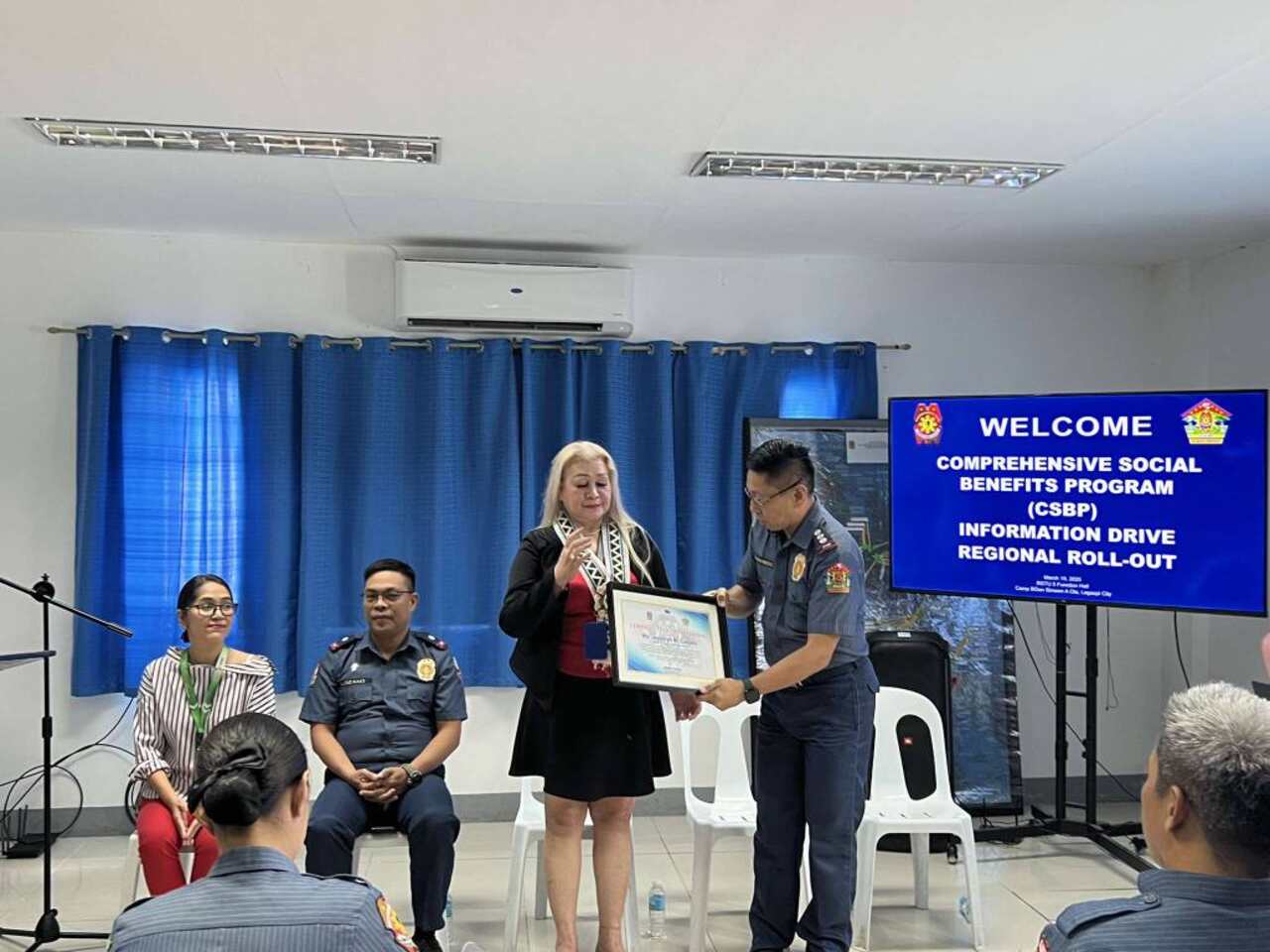The National Housing Authority’s Comprehensive Social Benefits Program (CSBP) is a program designed to provide immediate assistance to the families of fallen or wounded soldiers and police personnel in service. The program is grounded on the directives of Administrative Order No. 201, s. 2016 and reinforced by subsequent executive orders aimed at enhancing support for uniformed personnel who were killed in action (KIA), wounded in action (WIA), killed in police operations (KIPO), or wounded in police operations (WIPO). Its implementation underscores the state’s recognition of the sacrifices made by uniformed personnel and its duty to provide their families with decent housing and improved living conditions.
The CSBP’s main goal is to offer housing assistance as part of a larger social protection package that upholds the dignity and welfare of affected families. By helping them secure permanent shelter, the program not only addresses their basic needs but also promotes long-term stability and resilience. Understanding how to apply for this program is essential for eligible beneficiaries to fully access the benefits they deserve and ensure they receive timely support during critical periods of recovery and adjustment. If you are a dependent of a uniformed personnel who was killed or wounded in service, you may be eligible for support through the CSBP. In this guide, we’ll walk you through how to apply for the NHA CSBP for KIA/WIA and KIPO/WIPO—from the eligibility criteria to the benefits, and the application process— to help you secure the support offered under this program.
What is the Comprehensive Social Benefits Program (CSBP)?

Officially institutionalized through Executive Order No. 110, signed in 2020, the program provided streamlined and sustainable social benefits to uniformed personnel of the Armed Forces of the Philippines (AFP), Philippine National Police (PNP), Bureau of Jail Management and Penology (BJMP), Bureau of Fire Protection (BFP), Philippine Coast Guard (PCG), and Citizen Armed Force Geographical Unit (CAFGU)/CAA who were either killed or wounded during legitimate military or police operations.
The program also extends assistance to qualified family members and legal beneficiaries.
Types of Assistance Available under CSBP
It provides a wide range of social benefits and support, which include:
1. Special Financial Assistance (SFA)
SFA is a one-time cash assistance granted to qualified families of KIA/KIPO personnel and those with TPPD or severe injuries. It is a direct financial aid to help the family manage expenses after the incident.
To date, many beneficiaries have already received this support, as reported by the Presidential Management Staff (PMS).
2. Housing Assistance (NHA Assistance)
Housing assistance is provided through the National Housing Authority (NHA). Beneficiaries have three options:
- Receive a housing unit in AFP/PNP housing sites.
- Avail of PHP 450,000 to build a home on a personal lot.
- Receive PHP 100,000 to improve an existing home.
To apply, beneficiaries must coordinate with the NHA and complete the required documentation. As of the latest update, several applications have already been granted, while others are in progress.
3. Health and Medical Assistance
Family members are enrolled in PhilHealth and can receive help with medical expenses, hospitalization, and maintenance medicines. Over 450 beneficiaries have already been enrolled and supported through this benefit.
4. Educational Assistance
Scholarships are available for up to two qualified dependents of KIA/KIPO or WIA/WIPO personnel with TPPD. Other financial support includes funeral assistance, education reimbursements, and enrollment in existing scholarship programs such as AFPEBSO and NAPOLCOM programs.
5. Employment Assistance
Eligible family members may be referred to job opportunities in government agencies or endorsed to local government units (LGUs) for employment support. Some families also undergo assessment for referral to other agencies such as the Department of Public Works and Highways (DPWH) or Presidential Management Staff regional units.
6. Social Welfare Assistance
Beneficiaries may receive social assistance such as:
- Enrollment in the Modified Conditional Cash Transfer (MCCT) under DSWD.
- Monthly rice subsidy or cash equivalent based on market rates.
Due to program changes, some MCCT beneficiaries are now being migrated to the Pantawid Pamilyang Pilipino Program Information System (PPIS).
7. Skills Training and Livelihood Support
Beneficiaries are also offered opportunities to build livelihoods and gain income-generating skills. Partner agencies like TESDA, DTI, and BSP offer training in:
- Entrepreneurship and small business management
- Financial literacy
- Driving and vocational skills
Upon completion, beneficiaries receive a joint certificate that may help them qualify for livelihood grants.
Who Can Apply?
The CSBP covers uniformed personnel who are:
- Killed in Action (KIA): Died during military operations or combat support roles.
- Killed in Police Operation (KIPO): Died during legitimate police operations.
- Wounded in Action (WIA): Sustained injuries during military combat operations.
- Wounded in Police Operation (WIPO): Sustained injuries during police operations.
- With Total Permanent Physical Disability (TPPD): Personnel rendered unable to perform duties due to service-related injuries.
Eligible beneficiaries may include:
- Legal spouse
- Legitimate or adopted children (up to age 21 or unmarried)
- Parents, grandparents, or unmarried siblings
- Cohabiting partners (with legal proof and no impediment to marriage)
Documents Required
To apply for the NHA CSBP, applicants must prepare and submit the following required documents:
- Duly accomplished NHA CSBP Application Form
- Endorsement letter from the Department of the Interior and Local Government (DILG) or concerned agency
- Certified True Copy of Death Certificate or Medical Certificate indicating KIA/WIA or KIPO/WIPO status
- Certificate of Service Record from the Armed Forces of the Philippines (AFP) or Philippine National Police (PNP)
- Proof of relationship to the covered personnel
- Marriage Certificate (if applicable)
- Birth Certificate/s of dependent children (if applicable)
- Government-issued valid ID of the surviving spouse or legal beneficiary
How to Apply for the CSBP and NHA Housing Assistance
Here is a step-by-step guide to help you apply:
Step 1: Verify Eligibility
Confirm that the uniformed personnel and your family are included in the list of eligible personnel as defined in Executive Order No. 110.
Step 2: Prepare Required Documents
Commonly required documents include:
- Proof of relationship to the covered personnel (e.g., marriage certificate, birth certificate)
- Death certificate or medical report indicating KIA/WIA/KIPO/WIPO status
- Certificate of service or incident report from AFP, PNP, or relevant agency
- Valid government-issued IDs
Step 3: Submit Application
Submit your application to the appropriate agency, depending on the benefit type:
- For housing assistance, coordinate directly with the National Housing Authority (NHA).
- For employment or financial aid, consult with DILG or DPWH offices.
- For educational benefits, approach the scholarship offices of AFP or NAPOLCOM.
- For health support, coordinate with PhilHealth and DOH.
- For cash assistance, follow up with the Presidential Management Staff (PMS).
Step 4: Track Progress
Once submitted, monitor your application through the agency handling your request. Some cases may be endorsed to local LGUs for additional support and coordination.
Program Updates and Coordination
The Regional Working Group (RWG) regularly meets to discuss the program’s progress. The group includes representatives from PMS, DSWD, DILG, DPWH, TESDA, DTI, BSP, NAPOLCOM, and other key agencies to streamline services for beneficiaries.
As part of their mandate, these agencies are working together to accelerate processing and delivery of benefits.
Additional Support Services
Aside from CSBP core components, beneficiaries may still access other government programs, including:
- Livelihood packages from DTI and DOLE
- Training grants from TESDA
- Counseling and psychosocial support
- Cooperative membership benefits like those from the Philippine Army Finance Center Producers Integrated Cooperative (PAFCPIC)
Video: Pagpupugay sa Bayani ng Bansang Makabayan
The Comprehensive Social Benefits Program (CSBP) offers much-needed support for families of uniformed personnel who have sacrificed in the line of duty. From housing and health assistance to scholarships and job referrals, the program covers a wide range of support. If you are eligible, make sure to process your application through the proper channels to access the benefits designed to help you rebuild and sustain your family’s future. To learn more about CSBP, you may also check out this video from RTVM:
For further assistance or inquiries, you may visit your local DILG, NHA, or PMS office.
